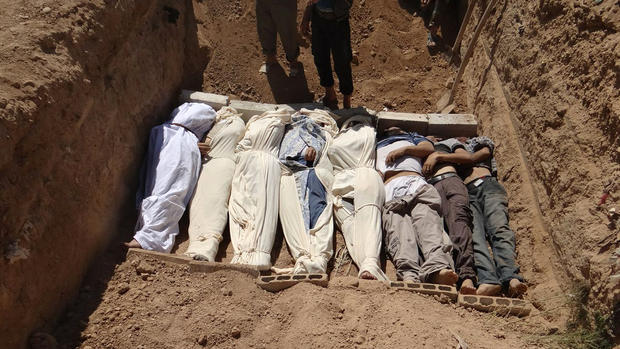Russia unconvinced that Assad behind Syria chemical weapons attack
MOSCOW Russia remains unconvinced that Syria's President Bashar Assad's military is responsible for the Aug. 21 chemical weapons attack on the eastern Ghouta suburbs of Damascus, in spite of a United Nations report on the incident which the U.S., Britain and France say amounts to irrefutable evidence.
"We want the events of the 21st of August to be impartially, objectively, professionally investigated," said Russian Foreign Minister Sergey Lavrov on Tuesday, arguing that the Syrian regime's claim it was rebels who launched the poison gas attack could not be dismissed based on the evidence available.
"The truth has to be determined," said Lavrov, standing alongside his French counterpart Laurent Fabius, who reiterated Paris' firm belief that Assad's military forces carried out the attack which left more than 1,400 people dead according to the White House.
Russia has previously and publicly lent support to the Assad regime's claim that rebel fighters carried out the sarin gas attack in Ghouta, and Lavrov said Tuesday that he and his government "have serious grounds to believe that it was a provocation" by rebels.
CBS News correspondent Clarissa Ward reports that the 41-page report compiled by a team of special inspectors who visited the Ghouta suburbs left no doubt that large quantities of the nerve gas sarin were used against civilians in the area, but the report did not attempt to conclude who was to blame for the attacks.
The report listed as evidence the rockets that were used in the attack, which it described as at least two types carrying warheads capable of delivering large quantities of the toxic chemical compound.
In included photographs of one of the rockets used in the attack which shows lettering from the alphabet used in Russia. Russia is Syria's number-one weapons supplier and has been for years.
Ward notes that the weapons found at the scene of the Ghouta attacks were professionally made -- not the crude homemade rockets many of the rebel factions fighting Assad have used.
The U.N. team's findings seemed to echo a separate investigation carried out by the New York-based non-profit group Human Rights Watch. HRW based its findings entirely on information provided by opposition activists on the ground and witness accounts, as it could not access the Ghouta sites, but the group concluded -- pointing largely to the types of rockets used -- that Assad's military was behind the attack.
Speaking Monday after being briefed on the inspectors' findings, U.S. Ambassador to the U.N. Samantha Power said the "technical details of the U.N. report make clear that only the regime could have carried out this large-scale chemical weapons attack."
"It's very important to note that the regime possesses sarin," added Power, "and we have no evidence that the opposition possesses sarin."
But still unconvinced, Moscow is insisting that a new United Nations resolution on Syria not allow the use of force, but Lavrov has suggested the issue could be reconsidered if Syria violates the eventual agreement to abandon its chemical weapons for internationally supervised destruction.
France and the United States insist a military option remains on the table, and they are pushing for the U.N. resolution to include harsh punishment for the Syrian regime should it fail to live up to its end of the bargain.
Lavrov said he "spoke clearly" about rejecting a use-of-force clause when he and U.S. Secretary of State John Kerry hammered out the framework for the chemical weapons agreement in Geneva last weekend.
